Sisal is a type of tree known for being hardy. Sisal is also the name of a woman but her body, despite her age, is anything but hardy. The Sisal tree is naturally wooden but Sisal…full of soft feelings, a pure flower, a delicate woman…I believe that humans are supreme creations otherwise Sisal would be born in a dog’s society…
The blossoming of a flower – is that the only purpose in life? Sisal, doesn’t the wind have a right to blow? Have faith in the wind as well! You know what Sisal, why don’t you just accept the wind? You have also turned into an animal, having grown up in this animalistic society. For once…for once Sisal, just accepts ruin. Perhaps you won’t cry then…
Do you love me?
What a meaningless question…My love is not enough, is it?
That means…you will marry me, right?
Listen, I will marry a man whom I have never seen before….And he has to be able to demonstrate his cruelty and savagery on the wedding night itself. If he attempts to understand my psychology, he will also be defeated, forever defeated. Do you not understand? I don’t believe in love!
Sisal!
I have accepted the necessity of marriage but I don’t believe in surrendering.
Sisal, is this your…
Yes, this is my only conclusion so far.
— An excerpt from Parijat’s Ek Kathin Niskarsha, published in Ruprekha
And this is also Parijat’s only conclusion so far.
“I’m not against marriage as long as there are mutual love and understanding. But I cannot submit myself. I cannot destroy my humanity; neither can I allow someone else to destroy it. To be completely honest, I despise the notion of offering one’s body. Perhaps this is because of my superiority complex.”
It is possible that this is due to her superiority complex. But it’s not that Parijat doesn’t want to get married at all. If someone with all the qualities she desires shows up she will consider marriage. In fact, there is someone in her life whom she considers to be “the one,” but the issue of marriage has been lingering for a while. Bhupi Sherchan, Madan Regmi and others have been associated with Parijat, but marriage is an altogether different ballgame; these men are friends only. And it’s possible that they do not have the qualities desired by Parijat.
“Life is worthless, but it can’t be ignored. What I think of life is– it’s certainly not a joyful experience; humans are born to suffer. Humans have to endure suffering at every stage. One can invent any excuse to survive but whatever excuse one makes, life is very sad; life is purposeless. Even after knowing this, I make several excuses to live and I am capable of making excuses. That’s why there is no point complaining either. So whatever happens, I quietly tolerate and let it be.” Sukanya and I have been listening to Parijat’s speech.
But her speech hasn’t ended yet– “I don’t think humans are inherently good. In comparison, I respect and love dogs equally because I have become disillusioned with humans.”
“Why…” I want to find out her complete reasoning behind this but Parijat interjects, perhaps having sensed my intention, “I have understood people very well, based on my own perspective. Because of our mental prowess and intelligence, we are capable of being extremely knowledgeable; and that’s how I encountered negative traits such as dishonesty and pride. Maybe that’s why there is disillusionment in me.” This is Parijat’s point of view and also Sisal’s attitude. Sakambari and Suyogbir [characters from her novel Sirishko Phool] have similar perspectives.
I ask, “Why have you mixed yourself with your characters in this way, Parijat-Ji? Why did you make each one of them your mouthpiece? Why did you turn Sirishko Phool, Ek Kathin Niskarsha and your poems into your life story?’’ My questions are not a reproach or a complaint, just sincere curiosity.
Sukanya has been embroidering a handkerchief. I am sitting by a window. And in the empty space between us, there is a floor-cushion on which Parijat is sitting.
“None of my work is my life story, but I did make Sisal, Sakambari and Suyogbir speak my thoughts. Basically, when it comes to life principles, I don’t find much difference between theirs and mine.” After saying this, Parijat becomes quiet. I also remain quiet but am thinking to myself, “There isn’t much difference in their daily lives either.”
And I remember Yevgeny Yevtushenko, who said, “If a poet divides herself into two parts– person and poet– then she will definitely murder her artistic self.” Perhaps this is the reason why Parijat hasn’t committed suicide yet. And perhaps Parijat will never commit suicide because I am hearing Parijat say it herself, “This is it for humans. I think this is all we know. And so I have accepted life the way it is and how it is. After all, what are humans anyway? And why should I obey them? I get mixed emotions and that’s why I don’t get too negative either. And so, I don’t want to die just like that.”
A boy enters Parijat’s room, carrying flowers. He knows that Parijat likes flowers. He also knows that this is why Parijat named herself after a flower (a flower that can only be picked after it has fallen, a flower that cannot be touched in its youth, a dead flower picked by Arjun and brought to Kunti so that she could worship Mahadev– that’s Parijat.)
Inside Parijat’s room, lotus and Sawada are arranged neatly on a table; the Parijat flower is not there. In fact, the flower is never placed inside any hotel or club for the decorative purpose; Parijat herself is never seen inside these venues. I know that Parijat doesn’t like to visit or frequent such places. It’s not that she cultivated these habits in the last three years; she was like that even before these three years.
Three years.
One instant. One moment. One era.
Parijat spent all that time inside one small room, like a prisoner. Prisoner of rheumatism. A tall wall at the end of a long street in front of the room– this is the limit of Parijat’s vision. The tall trees standing next to these tall Singha Durbar walls; the spring that graces these trees and the birds twittering and enjoying the spring. Happiness everywhere; delirious birds in flight; and Parijat’s imagination in flight, always in flight– in the form of poems, stories, novels and now as a one-act play.
A doctor comes regularly to check in on Parijat and Parijat regularly goes to Shanta Bhawan for check-ups. This sequence of back and forth continues; so does Parijat’s rheumatism. It’s a parallel progression. Time passes–one, two, three days, a month, a year and then three years.
Tears flow for Parijat.
Pity descends upon Parijat.
A petition gets registered for Parijat.
A team of representatives gets mobilized for Parijat.
The wheels keep turning, Parijat keeps on looking, listening to all this, can’t remain true to herself. Anger arises inside her, frustration increases and she gets bitter, towards herself and towards her sympathizers, because Parijat knows how cheap people’s tears are, how cheap ‘pity’ is, and in this way, how cheap everything is.
I have been looking out of Parijat’s window at the empty street. Sukanya’s handkerchief is not complete. And out of Parijat’s mouth, “It will be exactly three years this March since I have been shut inside a room. I can’t survive on pity and sympathy; that’s why I don’t want to advertise my inconvenience. I am unable to provide pity and sympathy to others as well. That’s why I deeply resent and reject the emotions thrown at me by the literary community. I have accepted my disease as part of my life.” This is how time has been passing.
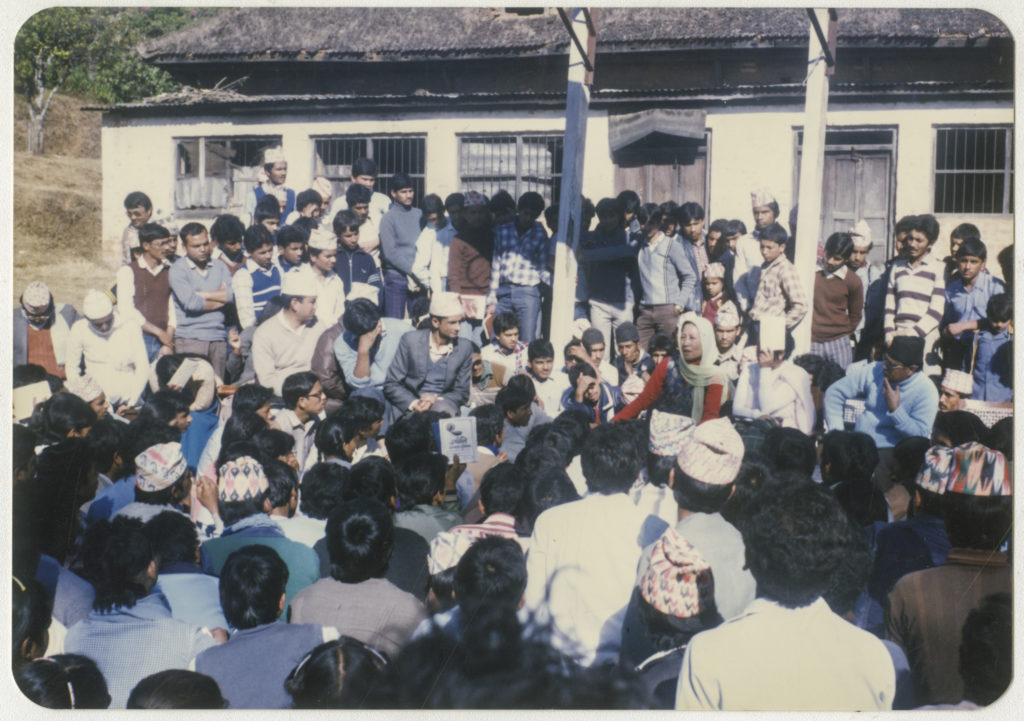
“My younger sister Sukanya is mad after literature and nationalism and she takes my existence better than (sic) of her own. She loves me like anything. I, who hate parasitism in love and maintenance, am a real parasite of her…”[An excerpt from Parijat’s autobiography, written in English] I have been reading, and I reread it, this time in a clear voice so that people who might be listening can understand. And then I look at Parijat’s face. I sense gratitude. My eyes hover around and land on Sukanya’s face. Her face becomes red– a beautiful mixture of shyness and acknowledgement. I ask Parijat, “This is it?”
“No, apart from Sukanya, I am also grateful to Dayasingh Miss for letting me lengthen my life.”
“And maybe some others?’
“Yes, towards my own life and with my faithlessness with life.”
“Faithlessness…”
“Faith is an experience that has no identity. It might work only for cowards and for people who have no self-esteem. That’s why I don’t have faith in this thing called God. I don’t have faith in life either and I don’t believe in this notion of belonging to someone.”
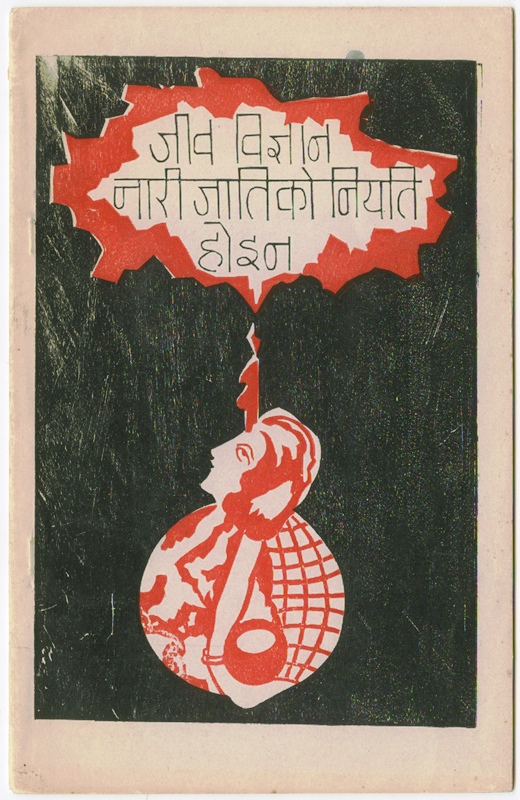
“Parijat prefers philosophy to literature, right?”
Her response, “I am more of a literary person; philosophy is just a subject of interest but literature is my life.”
“How did that happen?”
“I started writing in order to remove a worry that was inside me…”
“And how did you start publishing?”
“When I was doing my Intermediate studies, Chittaranjan-Ji came to teach Sukanya. At that time, I had written two or three poems. Chittaranjan-ji saw them and said, “I like them, I will publish them.” He took the poems and later Dui Kabita got published in Dharti around 1957.
My response comes in the form of “Oh…” Then I start speaking, “Parijat-ji, how do you view literature these days?”
The answer I get is, “I consider literature a major part of civilization. A nation cannot develop without the development of literature. That’s why literature is an inseparable part of a nation.”
“How much do you trust yourself to develop literature?”
“I don’t trust myself at all when it comes to these things. In fact, I don’t trust the notion that ‘If I do it it’ll develop and if I don’t do it, it won’t develop.” I write readers read. And that’s the limit of my creative ambition. I haven’t thought beyond this.”
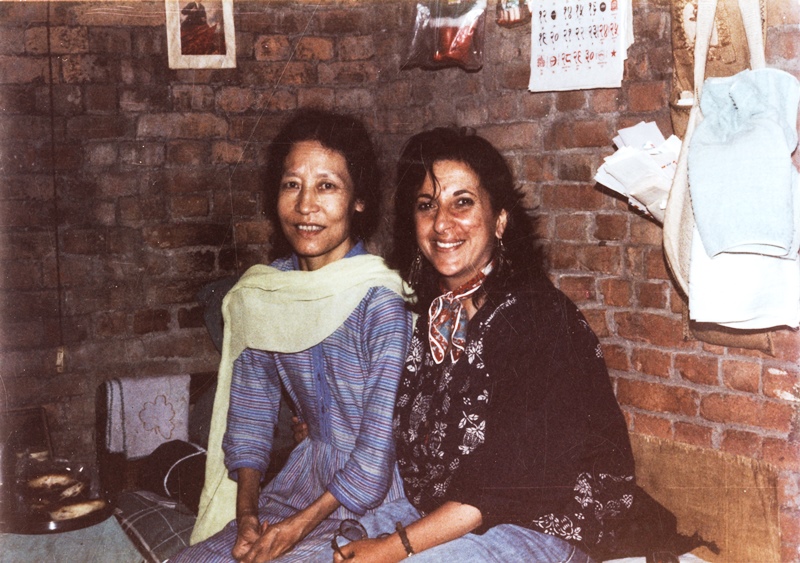
Parijat with anthropologist Barbara Nimri Aziz. Aziz shared her discovery of Yogmaya’s story in the Arun Valley with Parijat, who in turn encouraged her intellectual associates to write about it and spurred the canonization of Yogmaya as Nepal’s first feminist.
“How much have you thought about sex? Should there be a limit to sexual expression in literature? What do you think about this idea?” I try to explore Parijat inside out.
“As long as the writer is honest regarding sex while imagining the work. Sexual expression shouldn’t be vulgar or obscene.”
“To what extent…? Actually, what exactly is vulgarity and obscenity anyway?”
“It depends on the way words and language are used. If sex is described merely for arousal and entertainment, that’s vulgarity and obscenity. Literature shouldn’t be like that. But if the writer is very aware and the description regarding sex is sincere, then one can invent legitimate literature on sex. In fact, this is lacking in the literature, this necessity in life. It’s a problem.”
“That’s fine but sincerity! What kind of sincerity? Sincerity towards whom? Towards yourself? Towards society or towards that handful of readers?”
“Sincerity as in awareness; not towards society or readers but towards yourself.”
Parijat ’s mother passed away when she was a little girl. But her large and prosperous family filled the gap left behind by her mother to some extent. Even so, from a young age, Parijat has been inclined to solitude. Gradually, family members started dying; her father started worrying. His medical practice, once successful, started to diminish. His faithlessness towards life increased; the household’s wealth decreased. While growing up in this environment, Parijat’s tendency to seek solitude became even greater.
Her grandfather had moved from Chainpur to Darjeeling; the granddaughter moved from Darjeeling to Kathmandu. Along with her were her younger sister Sukanya and her father, who had cut himself off from everything in life. The sisters enrolled themselves for further studies. Sukanya went to National College, Parijat to Padma Kanya. Both of them graduated and both stepped forward, prepared to work hard and struggle in order to survive.
Over time, Parijat’s interest in religious texts deepened. Her study of Gita, Bible and Quran increased. Along with this growth in the study, Parijat’s faithlessness also increased and one-day Parijat declared, “Faith is an experience that has no identity.”
The flowers inside a vase close to Parijat’s bed have wilted. Sukanya is rearranging the bouquet brought by the boy earlier in the morning. These flowers are fresh; they are beautiful, an attempt to maintain meaning in Parijat’s life, just like the attempt made by Sirishko Phool.
I ask, “What do you think of Sirishko Phool?”
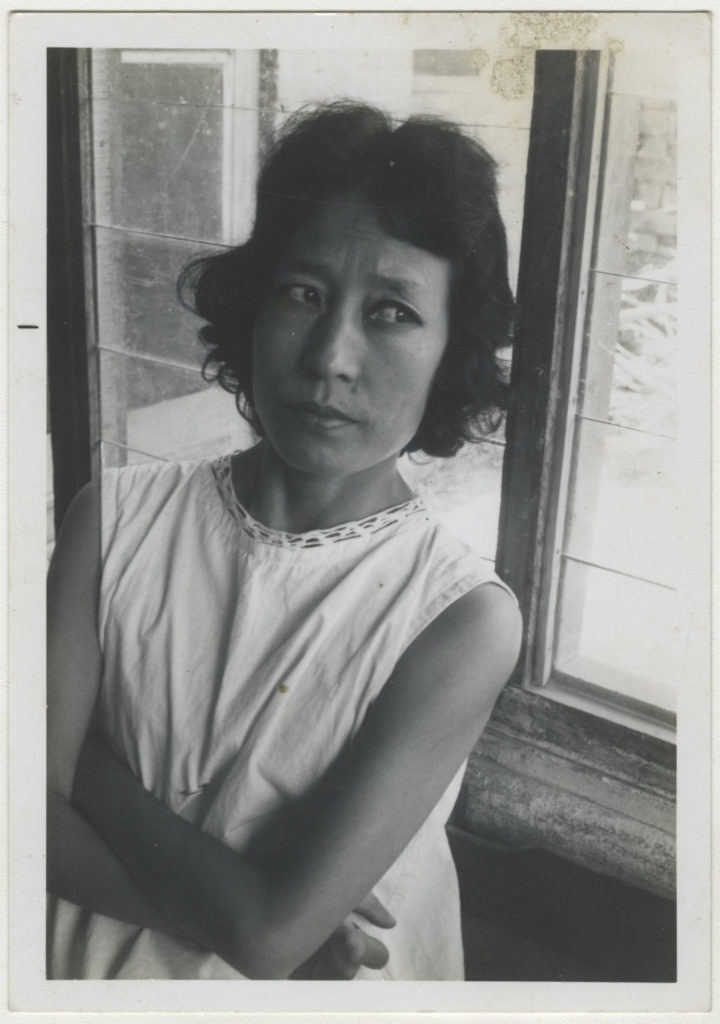
Sukanya lights a matchstick, Parijat blows out smoke, the smoke rises and colours the room.
Another puff of smoke escapes from Parijat’s mouth and so do these words, “There was no obligation for the philosophical ideas in Sirishko Phool to enter public life, but it did anyway. Now, there is that obligation. I’m proud of the fact that it shook traditional mindsets. I am also proud of Sirishko Phool for introducing an innovative way to write a novel in terms of language, style, plot and character presentation. I was already familiar with the idea that one ought to revolutionize novel-writing. Because no one has actually written a novel in Nepali. No one has the courage to write it, not even as much courage demonstrated by Suyogbir’s acceptance.”
Parijat continues to show her courage; Sukanya and I continue to listen. I have not been merely listening though; I also speak now and then, “Shankar Lamichhane’s preface to Sirishko Phool was controversial out there; do you agree with the preface?”
“I do. I had a wish to get Lamichhane-ji to write a preface to one of my novels, Uttam-ji. I got that wish fulfilled. Someone like Shankar Lamichhane tried to understand my sensibilities and wrote a thoughtful piece about me– that is a great honour. I also agree with his reasoning from a philosophical viewpoint.”
“What do you like writing the most– poems, stories or a novel?’
“Poems.”
“Whose work do you like?”
“I like poems written by Madan Regmi and Mohan Koirala. I also really enjoyed Bhupi’s poems, the ones he wrote when he was still dedicated to literature. When it comes to prose, I prefer Balkrishna Pokhrel, Shankar Lamichhane and Ramesh Bikal. Among those who are writing in innovative ways, I like Dhruba Chanda Gautam, Madan Regmi, and Prema Shah. The way Prema Shah presents her stories is comparable to any other internationally acclaimed writer.”
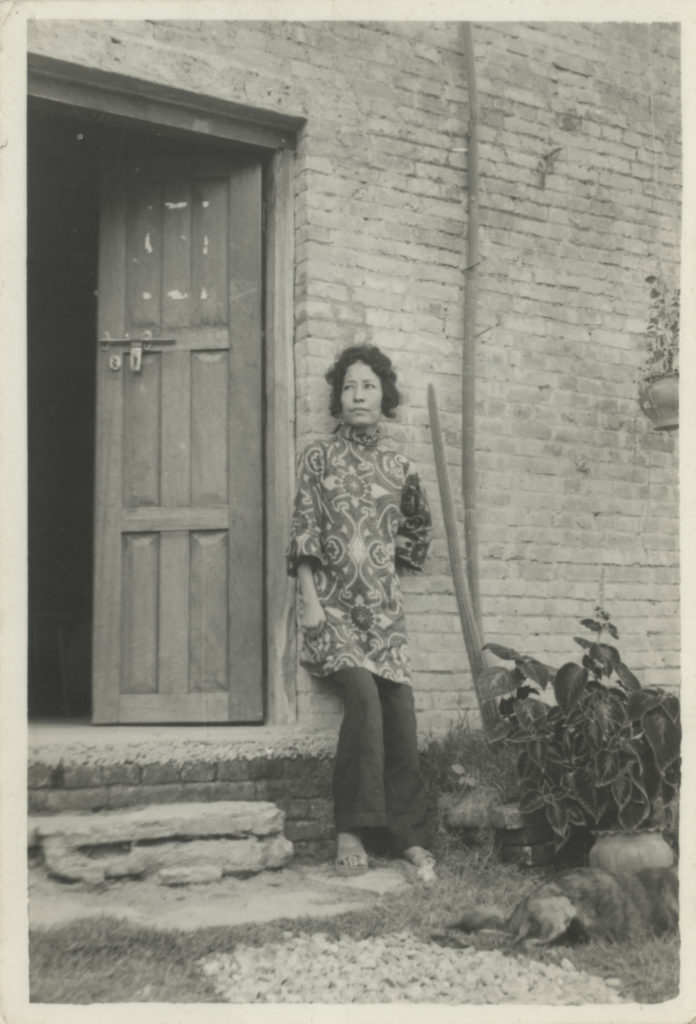
A cigarette gets lit again, smoke comes out of Parijat’s mouth again. Meanwhile, I resume reading, “I knew afterwards that she was a very beautiful woman who preferred to live behind the curtain with her family members and children, always fascinating the household affairs.” [An excerpt from Parijat’s autobiography, written in English]
This is a description of Parijat’s mother. Parijat’s description will also be similar. Gardening, embroidering, cooking, inviting people for meals – these are Parijat’s interests. She still pursues these interests, although infrequently, as long as her body lets her. Her mother had similar interests as well…And the daughter, just like her mother, is slender and beautiful. The smoke comes out again– this is Parijat’s current medium of entertainment. Actually, this is not the only way she entertains herself. She also enjoys chitchatting, going for picnics into the woods and listening to music.
The sun has been getting stronger in Putali Sadak. Buses and cars zoom past, in competition with each other; the chirping of birds softens. But my voice is clear, “In your opinion, what is your most successful work?”
Parijat’s voice is clearer than mine, “Actually, I haven’t been successful at anything. But in terms of comparative success, I like my story Tiuriko Phool, Paeeriyako Gandha and when it comes to poems, I like Lahurelai Rogi Premikako Patra, Mrityuko Angaloma and Nasodha Ae Ghau. When I read these, I feel like I am really on my way to becoming a writer.”
“What are you planning to write now?”
“If I live, I would like to write one more novel. These days, I write narratives for the radio – at least that covers my cigarette expenses.”
This is Parijat’s life story. No, let’s not call this her life story; this is just commentary. As Yevtushenko said it– “A poet’s autobiography is her poem. Apart from that, everything else is mere commentary.”
September 7, 1963
Parijat was a pen name chosen by the writer Bishnu Kumari Waiba. She was born in Darjeeling. She passed away on April 16, 1992, in Kathmandu at the age of 55. This is a translation by Niranjan Kunwar of an article from Uttam Kunwar’s anthology of interviews, Srasta ra Sahitya (Authors and Literature), published by the Uttam Kunwar Memorial Award Fund.
The featured images are part of The Public Life of Women, an exhibition borne out of the Feminist Memory Project, an ongoing archival project by Nepali Picture Library to re-build the untold histories of women of Nepal. The Public Life of Women is a part of Photo Kathmandu 2018 and will be shown between October 12 and November 16, 2018. These images and other artefacts related to Parijat will be displayed in the Nagbahal Community Health Service Center in Patan during the duration of the festival. For more information about the exhibition, and Photo Kathmandu 2018, please visit the festival website.
We are most grateful to The Record where this article was originally published, for giving us the kind permission to reproduce the same.
We request our readers to visit them at: https://www.recordnepal.com They are doing a phenomenal job of recording, documenting and telling stories that are often ignored.

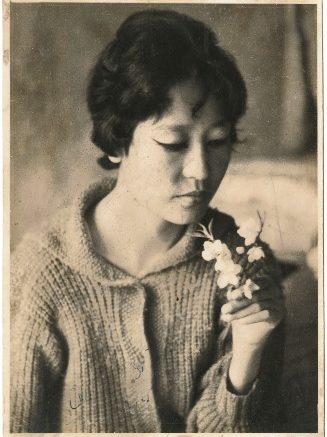



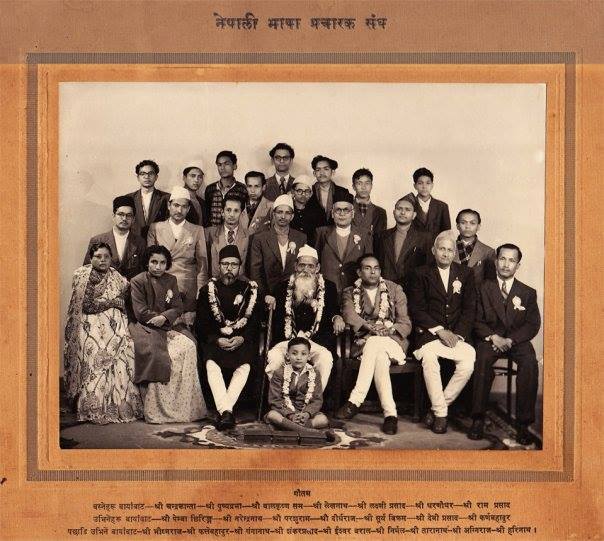
Shiris ko Phool is one the most beautiful novels I have ever read. The language is highly philosophical. I read it and got better perspective towards life and love, latter mostly unspoken and unexpressed. Furthre, I had a doubt that Parijat somewhat dipicted herself in the novel, especially with that ‘nikotinle paheliyeko awlaharu’ phrase.